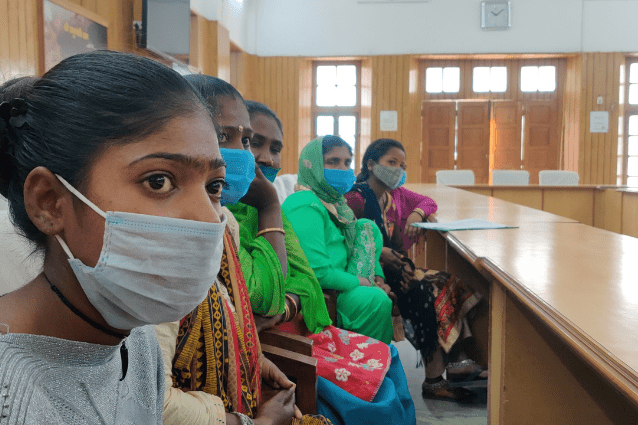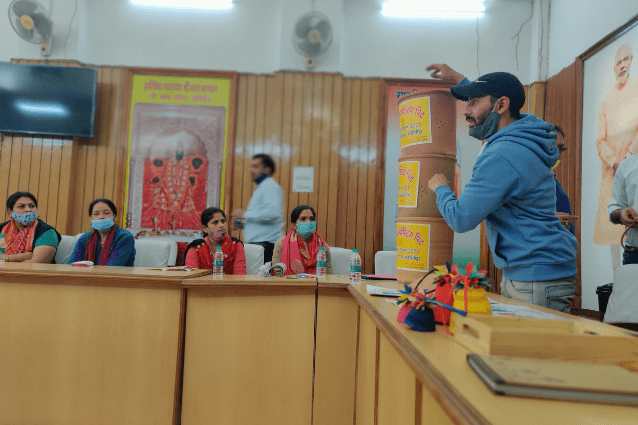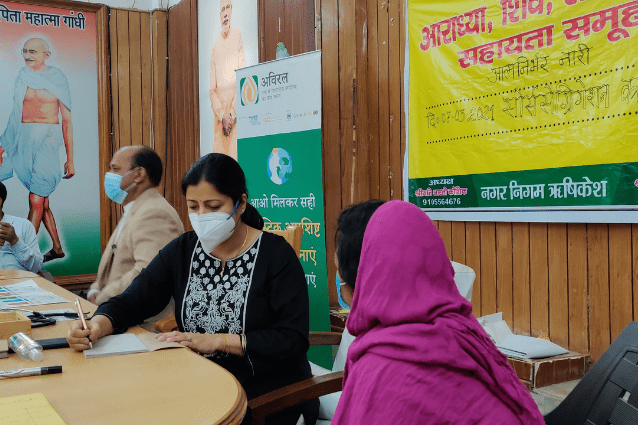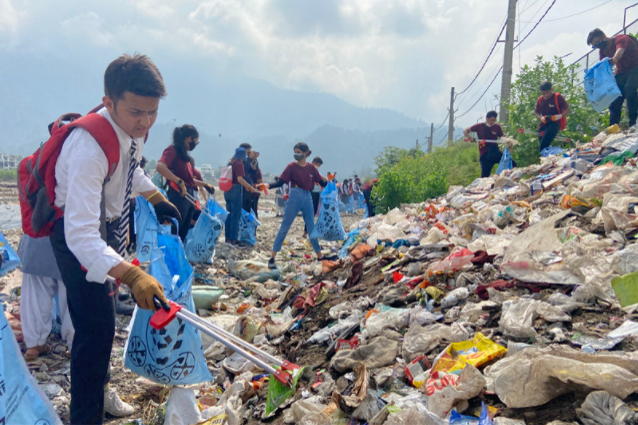
Location: Nagar Nigam Office, Rishikesh
Date: 2021-03-07
Aviral Discusses Menstrual Waste and it’s Proper Disposal on Women’s Day 2021
What better way of discussing menstrual hygiene and its disposal than providing women a platform for learning and sharing their concerns on Women’s Day? On the occasion of Women’s Day 2021, Team Aviral conducted an awareness session on Menstrual Hygiene and the importance of Waste Segregation with 23 women participants.

For the awareness session, two groups of women had participated, out of which one group consisted of informal female waste pickers working with the UNDP at the trenching ground (swacchta kendra) and the other group of women belonged to Self-Help Groups namely, Aradhya, Shiv, and Shakti Sahayta Samuh. This session was organized to interact with women on what is menstruation, how to maintain hygiene, the precautionary steps to take while using cloth or cotton pads during menstruation, and how to segregate this hazardous waste for proper treatment of that waste. Poor menstrual hygiene and lack of proper management of menstrual waste such as used cloth/pads can increase the problem of the already existing lack of proper waste segregation and management in the city and not only have an impact on women’s health but can have an overall impact on the environment.

Team Aviral along with UNDP and Rishikesh Nagar Nigam, promoted the idea of ‘Atma Nirbhar Nari’ (self-independent woman) through this event. The Assistant Commissioner, Mr. Vinod Lal of the Municipal Corporation addressed the women participants on the importance of waste segregation and introduced Team Aviral and their objective of reducing plastic waste in river Ganga. Further, our team member conducted a session on home composting where women can play a vital role in segregating organic waste and can be encouraged to make compost out of it!

“Change from home can lead to change in society” was one of the inputs given by a female waste worker post the awareness session. Women came together to share their experiences, stereotypes regarding menstruation, and the ‘silence’ around maintaining hygiene and management of waste generated through menstruation. The overall session was highly interactive and the participants were open to debunking existing norms related to menstruation and were accepting towards the practice of disposing of sanitary napkins responsibly.

Post the session, a medical camp was also organized for the women participants and a gynecologist from the government hospital was appointed for their health check-up. The Rishikesh Nagar Nigam distributed Vitamin C tablets, IFA tablets and checked the blood pressure levels of women as well as their temperature. The proper disposal of sanitary waste is an important aspect for effective waste segregation and we at Project Aviral believe that empowering stakeholders in the community is vital for our efforts to reduce plastic waste in Ganga.



























